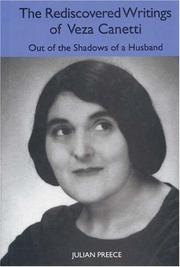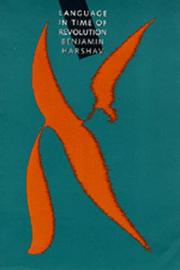| Listing 1 - 10 of 17 | << page >> |
Sort by
|

ISBN: 9754280509 Year: 1993 Volume: 9 Publisher: Istanbul : Editions Isis,
Abstract | Keywords | Export | Availability | Bookmark
 Loading...
Loading...Choose an application
- Reference Manager
- EndNote
- RefWorks (Direct export to RefWorks)
Jews --- Genealogy --- Dekalo family --- Ashkenazi family --- Istanbul (Turkey) --- Genealogy.
Book
ISBN: 1283165600 9786613165602 3110236060 9783110236064 9781283165600 9783110236057 3110236052 Year: 2011 Publisher: New York : Walter de Gruyter,
Abstract | Keywords | Export | Availability | Bookmark
 Loading...
Loading...Choose an application
- Reference Manager
- EndNote
- RefWorks (Direct export to RefWorks)
Where do East European Jews - about 90 percent of Ashkenazi Jewry - descend from? This book conveys new insights into a century-old controversy. Jits van Straten argues that there is no evidence for the most common assumption that German Jews fled en masse to Eastern Europe to constitute East European Jewry. Dealing with another much debated theory, van Straten points to the fact that there is no way to identify the descendants of the Khazars in the Ashkenazi population. Using a multidisciplinary approach, the author draws heavily on demographic findings which are vital to evaluate the conclusions of modern DNA research. Finally, it is suggested that East European Jews are mainly descendants of Ukrainians and Belarussians. UPDATE: The article "The origin of East European Ashkenazim via a southern route" (Aschkenas 2017; 27(1): 239-270) is intended to clarify the origin of East European Jewry between roughly 300 BCE and 1000 CE. It is a supplement to this book.
Jews --- Ethnicity --- Khazars. --- Akatziroi --- Chazars --- Chozars --- Khazirs --- Khwalisses --- Ethnology --- History. --- Origin. --- Ashkenazi Jewry. --- DNA Research. --- Demography. --- Jewish History.

ISBN: 9781571133533 1571133534 9781571137005 9786612150548 1282150545 1571137009 Year: 2007 Publisher: Suffolk Boydell & Brewer
Abstract | Keywords | Export | Availability | Bookmark
 Loading...
Loading...Choose an application
- Reference Manager
- EndNote
- RefWorks (Direct export to RefWorks)
The Viennese playwright, novelist, and short-story writer Veza Canetti was born in 1897 into a mixed Sephardic-Ashkenazi Jewish family and died in 1963 in London. Part of the avant garde in 1920s Vienna (where she met her future husband and Nobel Prize winner, Elias Canetti), from 1932 she wrote radical short stories drawn from everyday life for the Vienna 'Arbeiter-Zeitung.' After censorship under the so-called Corporate State reduced her opportunities for publication, she disguised her critique in irony and humor, but from then on published little. Until 1990, when her first novel, 'Yellow Street,' was finally published, Veza was known only as her husband's muse and literary assistant. As more of her writings appeared, critics became convinced that it was he who was responsible for her decline into obscurity, notwithstanding his protestations of support and admiration. This biography tells a more nuanced story, presenting Veza's literary career against the background of her troubled times, drawing on Elias's unpublished papers to assess their literary partnership, showing how their early writings constituted a private dialogue on topics as diverse as feminism and Jewish identity and how several key themes in his work are anticipated in hers. Julian Preece is Professor of German at the University of Wales, Swansea.
Authors, Austrian --- Canetti, Veza, --- Taubner-Calderon, Veza, --- Avant garde. --- Censorship. --- Everyday life. --- Humor. --- Irony. --- Jewish identity. --- Literary career. --- Mixed Sephardic-Ashkenazi Jewish family. --- Novelist. --- Short-story writer. --- Veza Canetti. --- Vienna Arbeiter-Zeitung. --- Viennese playwright.
Book
ISBN: 1978813422 1978813392 Year: 2020 Publisher: Rutgers University Press
Abstract | Keywords | Export | Availability | Bookmark
 Loading...
Loading...Choose an application
- Reference Manager
- EndNote
- RefWorks (Direct export to RefWorks)
Projecting the Nation: History and Ideology on the Israeli Screen is a wide-ranging history of over seven decades of Israeli cinema. The only book in English to offer this type of historical scope was Ella Shohat’s Israeli Cinema: East West and the Politics of Representation from 1989. Since 1989, however, Israeli cinema and Israeli society have undergone some crucial transformations and, moreover, Shohat’s book offered a single framework through which to judge Israeli cinema: a critique of orientalism. Projecting the Nation contends that Israeli cinema offers much richer historical and ideological perspectives that expose the complexity of the Israeli project. By analyzing Israeli films which address such issues as the Arab-Israeli conflict, the Ashkenazi-Mizrahi divide, the kibbutz and urban life, the rise of religion in Israeli public life and more, the book explores the way cinema has represented and also shaped our understanding of the history of modern Israel as it evolved from a collectivist society to a society where individualism and adherence to local identities is the dominant ideology.
Book
ISBN: 9782226436429 2226436421 Year: 2018 Publisher: Paris: Albin Michel,
Abstract | Keywords | Export | Availability | Bookmark
 Loading...
Loading...Choose an application
- Reference Manager
- EndNote
- RefWorks (Direct export to RefWorks)
Durant l'été 1987, près de quarante ans après la fondation de l'Etat d'Israël, deux géants du judaïsme français, Léon Askénazi et André Chouraqui eurent des entretiens à Jérusalem sur le destin de leur peuple, du sionisme et de leur religion. Trente ans plus tard, ce document unique est rendu accessible pour la première fois au public, présenté et annoté par l'historien des idées Denis Charbit. Dans son essai introductif, celui-ci décrit le contexte intellectuel et politique dans lequel eurent lieu ces conversations amicales.André Chouraqui (1917-2007), traducteur de la Bible hébraïque, des Evangiles et du Coran, prophète inlassable du dialogue entre les trois monothéismes abrahamiques, était a priori bien différent du maître talmudique visionnaire que fut Léon Askénazi (1922-1996), connu de plusieurs générations d'élèves sous le surnom qu'il avait gardé du scoutisme : "Manitou" . Mais les deux hommes étaient tous deux issus du judaïsme algérien, tous deux avaient été formés dans l'esprit républicain français, tous deux avaient fait ensuite leur alya et ils étaient animés d'une commune ferveur sioniste.Sur quels fondements judaïques une telle ferveur s'appuyait-elle, comment chacun des deux interlocuteurs faisait-il le lien entre les dimensions spirituelle et temporelle, quelles conséquences politiques en tirait-il ? Avec trente ans de recul, le lecteur d'aujourd'hui peut relire ces échanges passionnés et passionnants à la lumière de l'Histoire.
Jews --- Israel and the diaspora --- Zionism --- Judaism --- Jewish authors --- Authors --- Religions --- Semites --- Zionist movement --- Jewish nationalism --- Jewish diaspora --- Hebrews --- Israelites --- Jewish people --- Jewry --- Judaic people --- Judaists --- Ethnology --- Religious adherents --- Identity, Jewish --- Jewish identity --- Jewishness --- Jewish law --- Identity --- Intellectual life --- Relations --- Religion --- Politics and government --- Restoration --- Attitudes toward Israel --- Ethnic identity --- Race identity --- Legal status, laws, etc. --- Askénazi, Léon --- Chouraqui, André, --- Shuraki, Nathan Andreh, --- Chouraqui, Nathan André, --- שוראקי, אנדרה, --- שוראקי, נתן אנדרה --- Ashkenazi, Liʼon --- Askénazi, Yéhouda Léon --- Ashkenazi, Yehudah --- Ashkenazi, Yehuda Liʼon --- Manitou --- אשכנזי, יהודא --- אשכנזי, יהודא ליאון --- אשכנזי, יהודא ליאון (מניטו --- אשכנזי, ליאון --- אשכנזי, ליאון יהודא --- Maniṭu --- Bible. --- Antico Testamento --- Hebrew Bible --- Hebrew Scriptures --- Kitve-ḳodesh --- Miḳra --- Old Testament --- Palaia Diathēkē --- Pentateuch, Prophets, and Hagiographa --- Sean-Tiomna --- Stary Testament --- Tanakh --- Tawrāt --- Torah, Neviʼim, Ketuvim --- Torah, Neviʼim u-Khetuvim --- Velho Testamento --- Criticism, interpretation, etc. --- Israel --- History. --- Chouraqui, André --- Ashkenazi, Liʼon, --- Askénazi, Yéhouda Léon, --- Ashkenazi, Yehudah, --- Ashkenazi, Yehuda Liʼon, --- Manitou, --- אשכנזי, יהודא, --- אשכנזי, יהודא ליאון, --- אשכנזי, יהודא ליאון (מניטו, --- אשכנזי, ליאון, --- אשכנזי, ליאון יהודא,
Book
ISBN: 9781644699850 Year: 2022 Publisher: Boston, MA : Academic Studies Press,
Abstract | Keywords | Export | Availability | Bookmark
 Loading...
Loading...Choose an application
- Reference Manager
- EndNote
- RefWorks (Direct export to RefWorks)
This comprehensive and up-to-date guide to the genetic origins of Ashkenazic Jews focuses on their 129 maternal haplogroups and their connections to the Middle East, North Africa, Europe, and East Asia. It definitively shows that all Ashkenazim descend both from the ancient Israelites and from converts to Judaism.
Jews --- SCIENCE / Life Sciences / Genetics & Genomics. --- Hebrews --- Israelites --- Jewish people --- Jewry --- Judaic people --- Judaists --- Ethnology --- Religious adherents --- Semites --- Judaism --- Genetics. --- Origin. --- Identity --- History. --- Ashkenazi Jews (Ashkenazim). --- genetics (DNA). --- haplogroups. --- history. --- inter-ethnic relationships and intermarriage. --- migrations. --- origins. --- proselytes (converts to Judaism).

ISBN: 0520912969 0585078823 9780520912960 9780585078823 0520079582 Year: 1993 Publisher: Berkeley ; Los Angeles, California : University of California Press,
Abstract | Keywords | Export | Availability | Bookmark
 Loading...
Loading...Choose an application
- Reference Manager
- EndNote
- RefWorks (Direct export to RefWorks)
This text on culture and consciousness in history concerns the worldwide transformations of Jewish culture and society and the revival of the ancient Hebrew language following the waves of pogroms in Russia in 1881, when large numbers of Jews in Eastern and Central Europe redefined their identity as Jews in a new and baffling world.
Hebrew language --- Jews --- Languages & Literatures --- Middle Eastern Languages & Literatures --- Jewish learning and scholarship --- Revival. --- Cultural assimilation. --- Intellectual life. --- Revival --- Cultural assimilation --- Intellectual life --- ancient hebrew. --- ashkenazi. --- cultural history. --- hebrew language. --- hebrew revival. --- hebrew translations. --- history of israel. --- history of judaism. --- israeli lit. --- jewish assimilation. --- jewish culture. --- jewish family. --- jewish history. --- jewish ideology. --- jewish life. --- jewish readers. --- jewish studies. --- jewish. --- judaism. --- linguistics books. --- modern jewish revolution. --- religion and lingusitics. --- religion. --- religious historian. --- religious literature. --- religious revolution. --- religious studies. --- social revolution. --- the torah.
Book
ISBN: 197882761X 1978827628 9781978827622 9781978827615 9781978827608 1978827601 9781978827592 1978827598 Year: 2022 Publisher: New Brunswick, NJ : Rutgers University Press,
Abstract | Keywords | Export | Availability | Bookmark
 Loading...
Loading...Choose an application
- Reference Manager
- EndNote
- RefWorks (Direct export to RefWorks)
This book analyzes the different conceptions of authenticity that are behind conflicts over who and what should be recognized as authentically Jewish. Although the concept of authenticity has been around for several centuries, it became a central focus for Jews since existentialist Jean-Paul Sartre raised the question in the 1940s. Building on the work of Sartre, later Jewish thinkers, philosophers, anthropologists, and cultural theorists, the book offers a model of Jewish authenticity that seeks to balance history and tradition, creative freedom and innovation, and the importance of recognition among different groups within an increasingly multicultural Jewish community. Author Stuart Z. Charmé explores how debates over authenticity and struggles for recognition are a key to understanding a wide range of controversies between Orthodox and liberal Jews, Zionist and diaspora Jews, white Jews and Jews of color, as well as the status of intermarried and messianic Jews, and the impact of Jewish genetics. In addition, it discusses how and when various cultural practices and traditions such as klezmer music, Israeli folk dance, Jewish yoga and meditation, and others are recognized as authentically Jewish, or not.
Jews --- Judaism --- Social perception --- Identity. --- Social conditions --- History --- Sartre, Jean-Paul, --- identity, culture, Judaism, Jewish people, communities, religion, belief, Jewish studies, Orthodox Judaism, Orhodox Jews, Liberals, liberalism, Liberal Jews, Liberal Judaism, secularism, secular, authenticity, authentic, struggle, genetics, ancestry, race, origin, diaspora, Zionist Jew, Zionism, Isreal, music, messianic Jews, messianic Judaism, Abrahamic religion, Christianity, folk dance, folk music, tradition, spirituality, Kabbalah, Ethopian Jews, Ashkenazi Jews, Sepharidic Jews, Mizarhi Jews, lost tribes, Black Jews, multiculturalism, crypto-judaism.
Book
ISBN: 9780228018278 Year: 2023 Publisher: Montreal ; Kingston ; London ; Chicago : McGill-Queen's University Press,
Abstract | Keywords | Export | Availability | Bookmark
 Loading...
Loading...Choose an application
- Reference Manager
- EndNote
- RefWorks (Direct export to RefWorks)
In the wake of the #MeToo movement, gender scholars and activists have asked whether a reconcilliation between Zionism and feminism is possible in the current political landscape. Fictions of Gender explores the contemporary controversies surrounding both Zionism and feminism, and how they are prefigured in the experiences and legacies of early Zionist women.Drawing on extensive archival research and the rarely studied corpus of published and unpublished creative, biographic, and essayistic writings by Zionist women throughout the intense first eighty years of the Zionist project (1880s–1950s), Orian Zakai situates Zionist women within the larger histories of colonization and the politics of ethnicity in Israel/Palestine. At the core of this study lie contemporary debates about the relationship between feminism, nationalism, and colonialism. Shifting long-standing paradigms in the scholarship on modern Hebrew literature and culture, Zakai confronts the study of gender and Zionism with the critical sensibilities of contemporary global feminism. Read both critically and compassionately, the writings of women authors and activists not only reveal lives full of contradictions but also point to cultural structures that shape the politics of Israel/Palestine to this very day.Fictions of Gender rethinks Israeli feminism through the lens of contemporary feminism, intersectionality, and post-colonialism.
Feminism in literature. --- Feminism --- Hebrew literature --- Hebrew literature, Modern --- Hebrew literature, Modern --- Jewish women authors --- Jewish women authors --- Women in literature. --- Zionism. --- Women authors --- History and criticism. --- History and criticism. --- History and criticism. --- Ashkenazi. --- Care. --- Colonialism. --- Debora Baron. --- Debora Ben Yehuda. --- Eliezer Ben Yehuda. --- Ethnicity. --- Feminism. --- Hannah Thon. --- Hebrew. --- Hemda Ben Yehuda. --- Intersectionality. --- Israel. --- Jewish. --- Labor. --- Land. --- Literature. --- Marginalization. --- Mizrahi. --- Motherhood. --- Nationalism. --- Nehama Pohatchevsky. --- Palestine. --- Patriarchy. --- Philantropy. --- Pioneers. --- Power. --- Rachel Bluwstein. --- Rachel Katzanelson. --- Settler. --- Shoshana Bluwstein. --- Sisterhood. --- Whiteness. --- Zionism. --- family. --- ideology. --- narrative.
Book
ISBN: 9781479887927 1479887927 9781479811236 1479811238 Year: 2018 Publisher: New York, NY : New York University Press,
Abstract | Keywords | Export | Availability | Bookmark
 Loading...
Loading...Choose an application
- Reference Manager
- EndNote
- RefWorks (Direct export to RefWorks)
Explores the full diversity of Black Jews, including bi-racial Jews of both matrilineal and patrilineal descent; adoptees; black converts to Judaism; and Black Hebrews and Israelites, who trace their Jewish roots to Africa and challenge the dominant western paradigm of Jews as white and of European descent. The book showcases the lives of Black Jews, demonstrating that racial ascription has been shaping Jewish selfhood for centuries. It reassesses the boundaries between race and ethnicity, offering insight into how ethnicity can be understood only in relation to racialization and the one-drop rule. Within this context, Black Jewish individuals strive to assert their dual identities and find acceptance within their communities. Putting to rest the notion that Jews are white and the Black Jews are therefore a contradiction, the volume argues that we cannot pigeonhole Black Hebrews and Israelites as exotic, militant, and nationalistic sects outside the boundaries of mainstream Jewish thought and community life. it spurs us to consider the significance of the growing population of self-identified Black Jews and its implications for the future of American Jewry.
Jews --- African American Jews --- Identity. --- History. --- United States. --- United States --- Ethnic relations. --- African-American Hebrew. --- Afro-American. --- Ashkenazi Jews. --- Beta Israel. --- Black Hebrew. --- Black Hebrews. --- Christianity. --- Conversos. --- Ethiopian Hebrews. --- Hutus and Tutsis. --- Israelite communities. --- Jewish diaspora. --- Jewish identity. --- Jewish intellectuals. --- Judaism. --- Orientalist thinking. --- Sephardic. --- US census. --- Whiteness. --- ancient Israelites. --- anti-Semitism. --- biracial Jews. --- black Jews. --- black converts. --- black-Jewish identities. --- black-Jewish relations. --- conversion. --- double consciousness. --- eastern European Jews. --- global Jewish narrative. --- kinship. --- political orientation. --- racial consciousness. --- racial performance. --- racial project. --- racial projects. --- racial taxonomies. --- racialization. --- racism. --- religious practice. --- situational passing. --- slavery. --- strategic essentialism.
| Listing 1 - 10 of 17 | << page >> |
Sort by
|

 Search
Search Feedback
Feedback About UniCat
About UniCat  Help
Help News
News